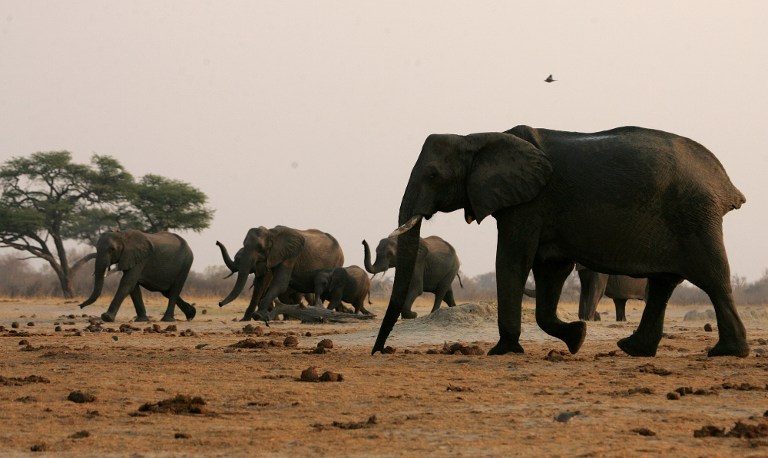SUMMARY
This is AI generated summarization, which may have errors. For context, always refer to the full article.

HARARE, Zimbabwe – Drought-hit Zimbabwe has invited local farmers and private game rangers to buy wild animals as it destocks national game reserves to save fauna from starvation, the wildlife authority said Wednesday, May 4.
Parks and wildlife authority spokeswoman Caroline Washaya said it has asked individuals and private game keepers to step in and buy wild animals “in the light of the drought.”
She did not have details of the species or numbers of the animals up for sale.
But the cash-strapped country has been battling to reduce its animals – especially elephants – whose population is more than twice what the parks can accomodate.
A notice in a state newspaper invited “members of the public with the capacity to acquire and manage wildlife” to make offers to buy.
Zimbabwe has in recent years resorted to exporting elephants to countries like China in a bid to raise funds and cut the ballooning population.
The drought has left at least a quarter of the population in need of food aid and President Robert Mugabe in February declared many parts of the rural areas in a “state of disaster.”
The drought has further strained national parks that are already burdened by the growing numbers of species like elephants.
The parks authority relies on donations from well-wishers to supply water for the wildlife, and volunteers to carry out patrols to ward off poachers.
The export of elephants to China angered international animal rights groups, but some local conservationists back government plans to sell off wildlife.
“Zimbabwe is facing one of its worst droughts ever, even worse than 1992 when thousands of wildlife were decimated,” Jerry Gotora, a conservationist and former chairman of the parks department, told AFP.
“All our national parks are in the driest regions and the biggest question as we experience this drought is ‘who is going to feed the wildlife and who is going to give them water?'” – Rappler.com
Add a comment
How does this make you feel?
There are no comments yet. Add your comment to start the conversation.